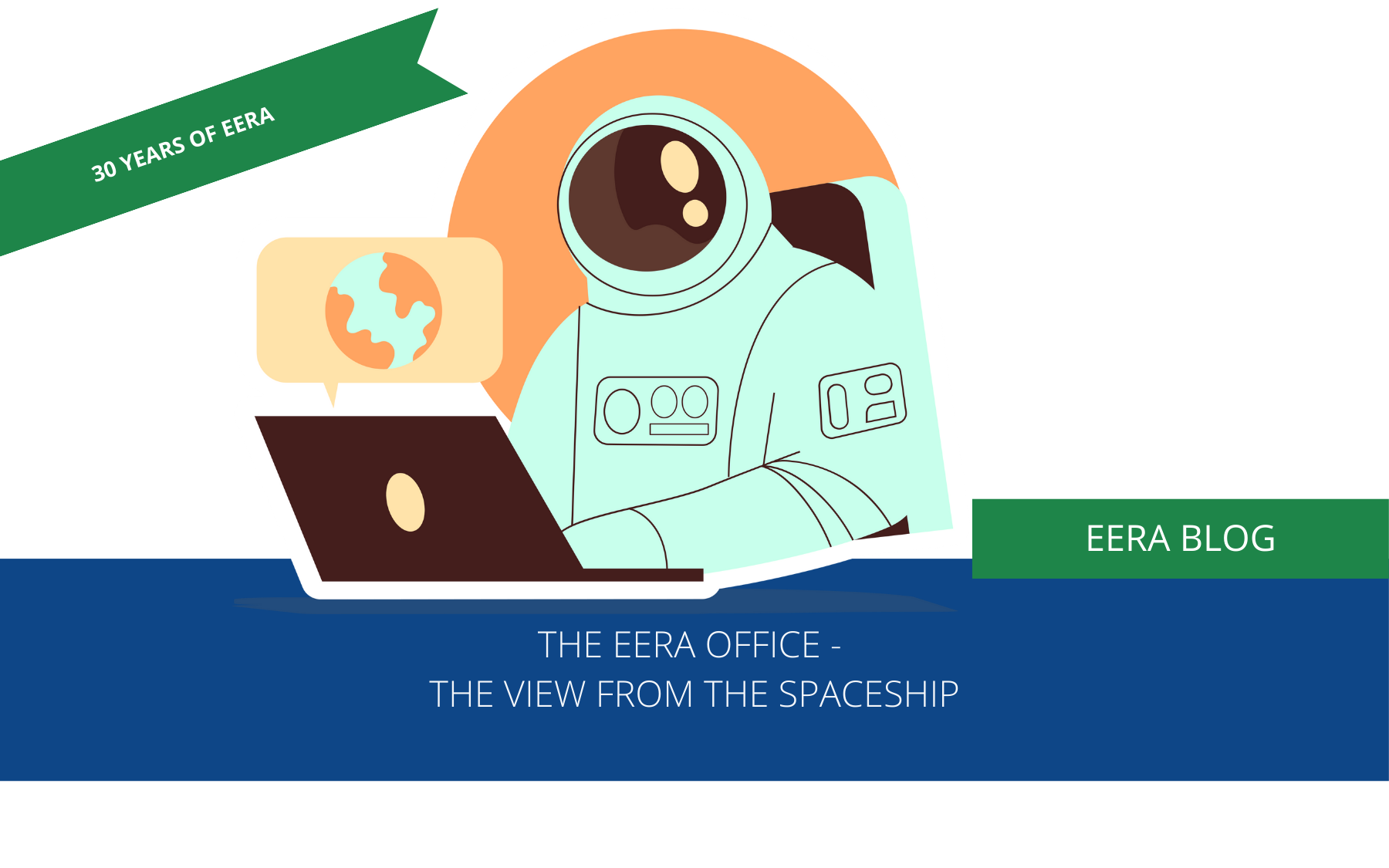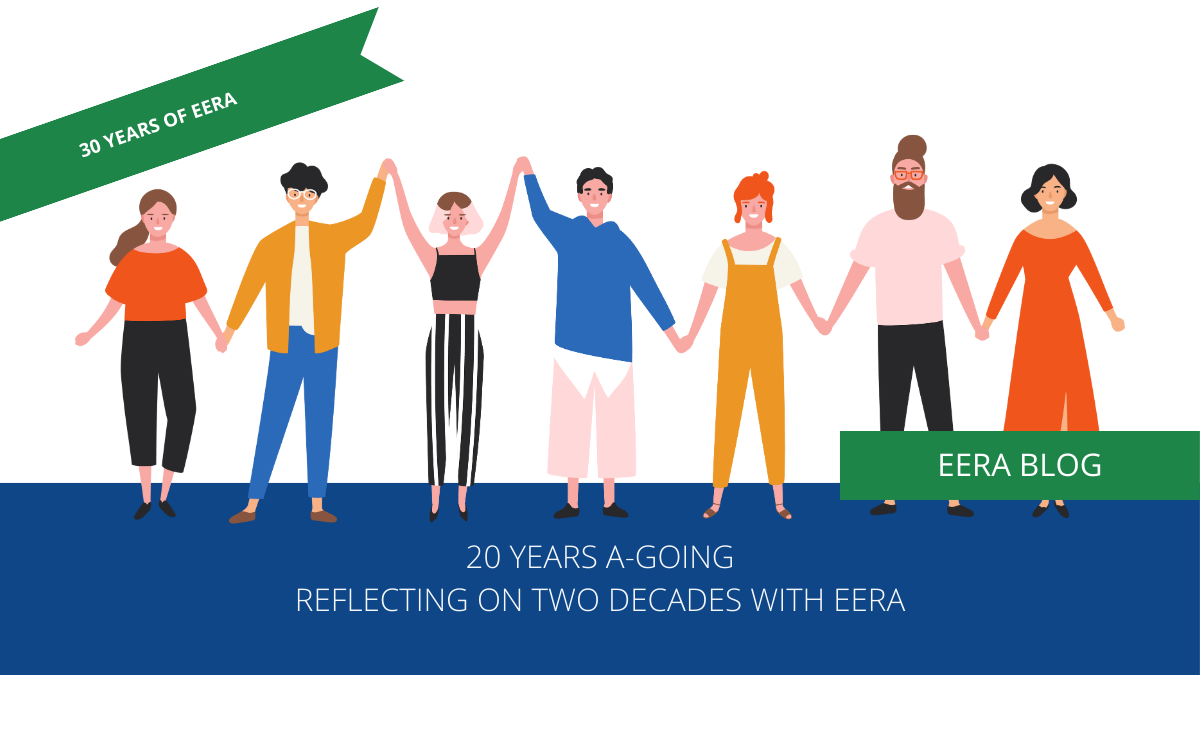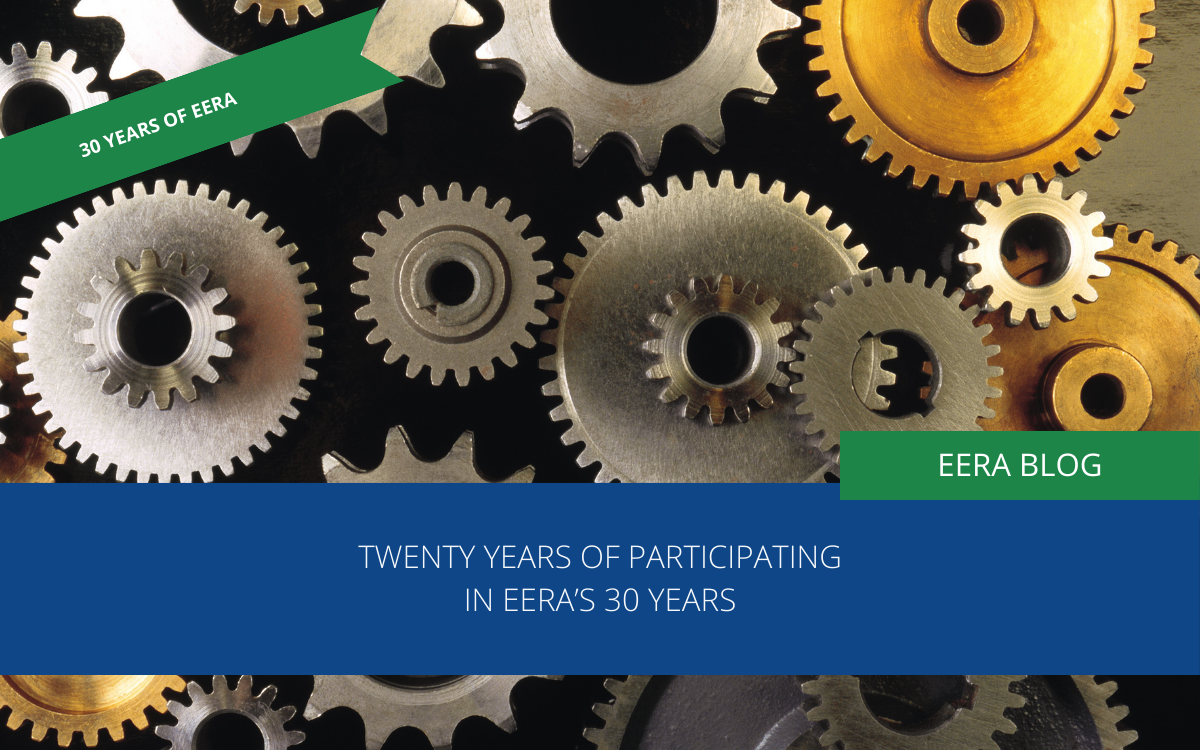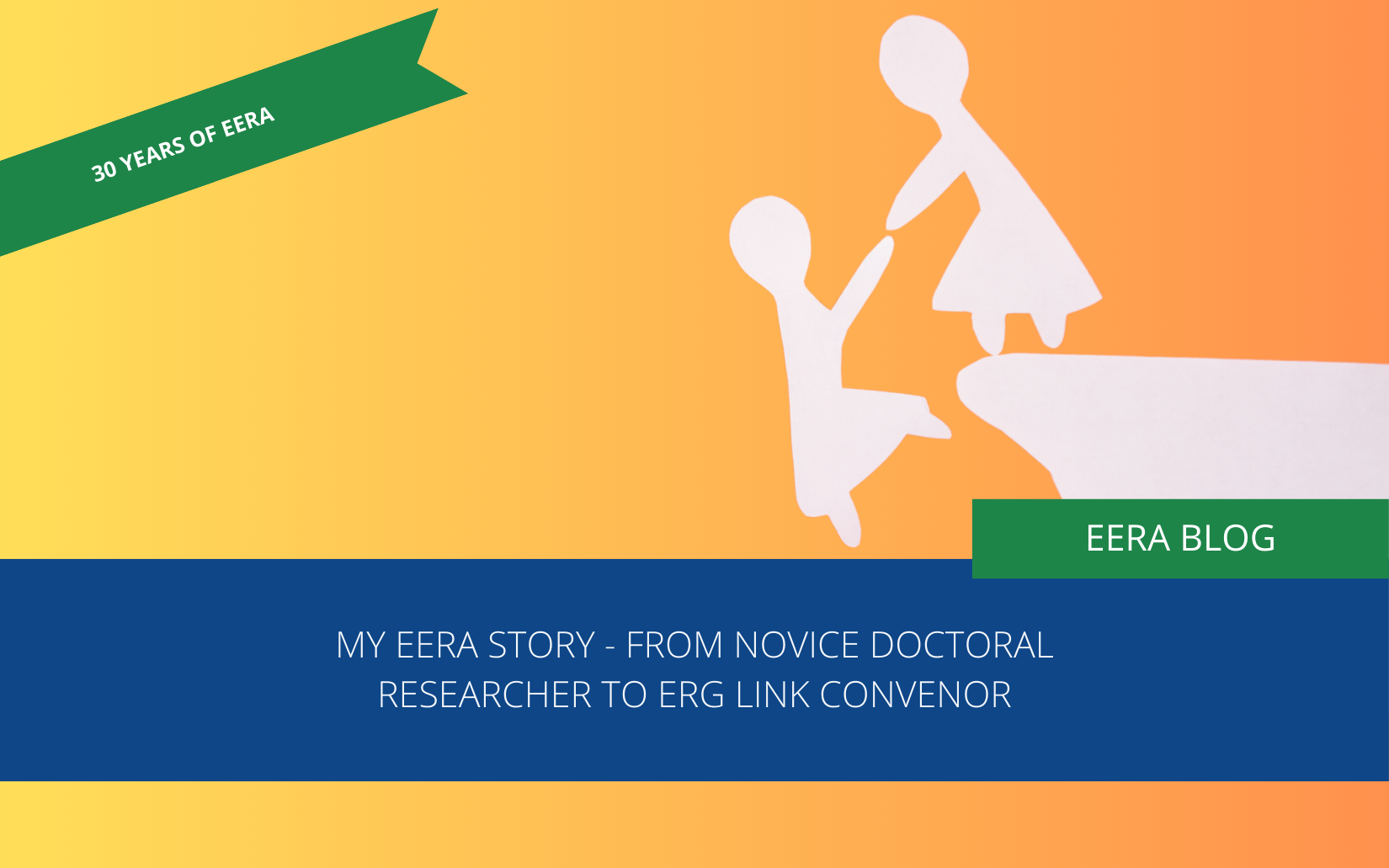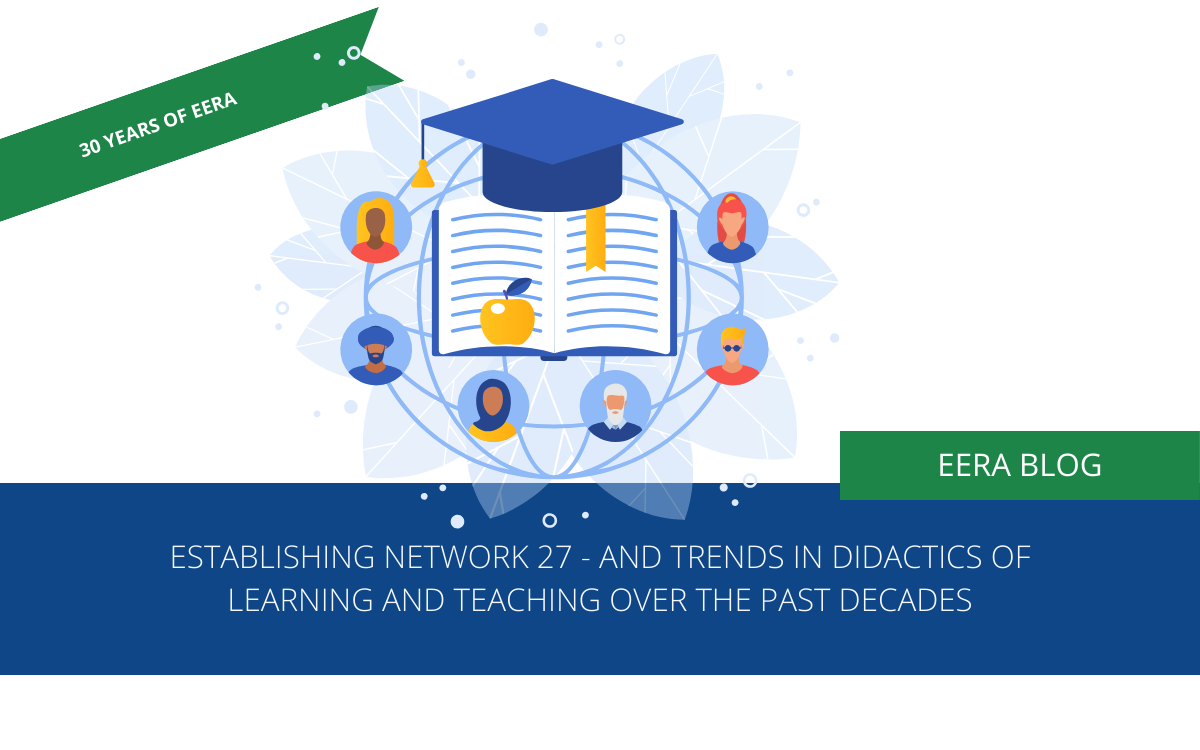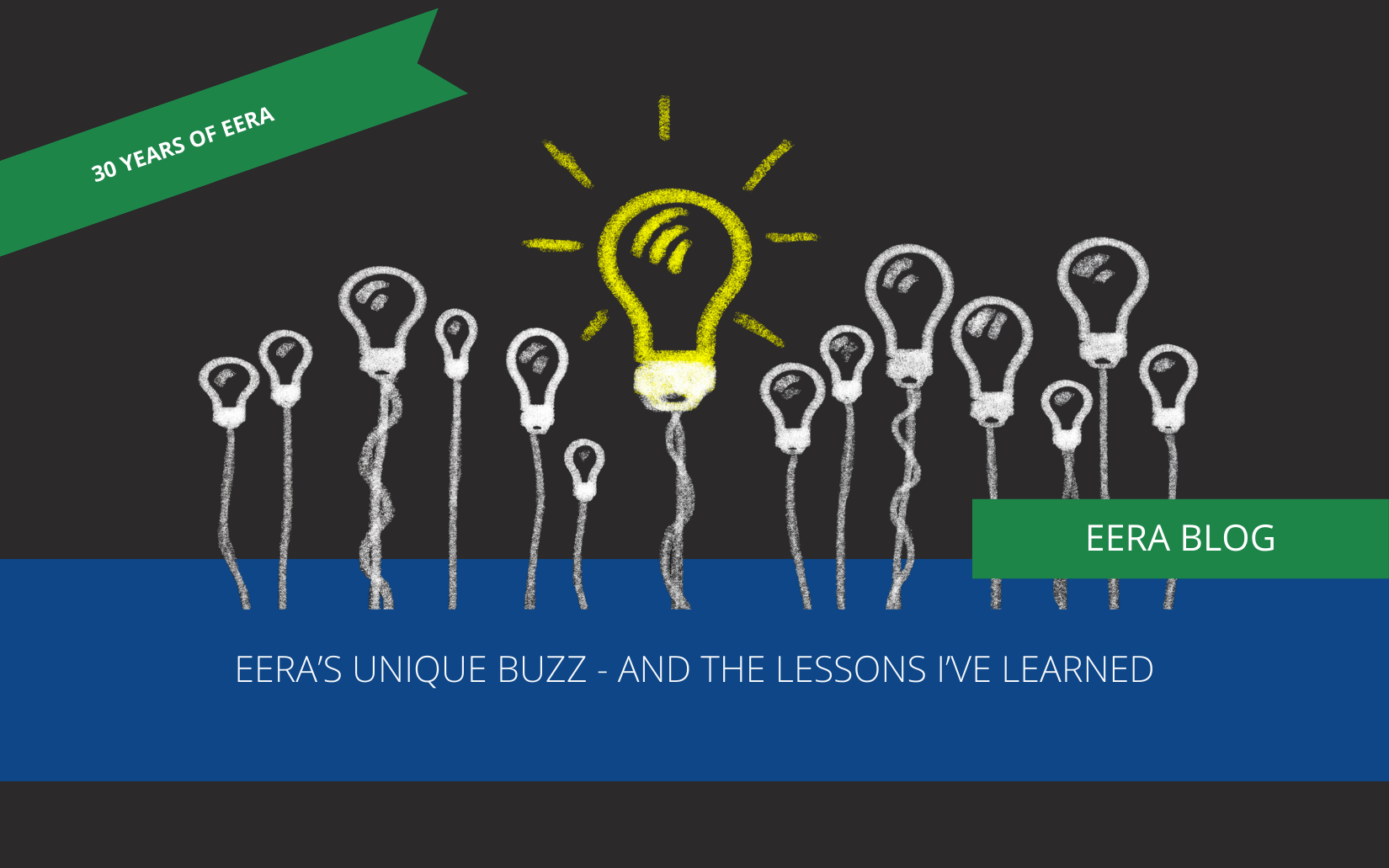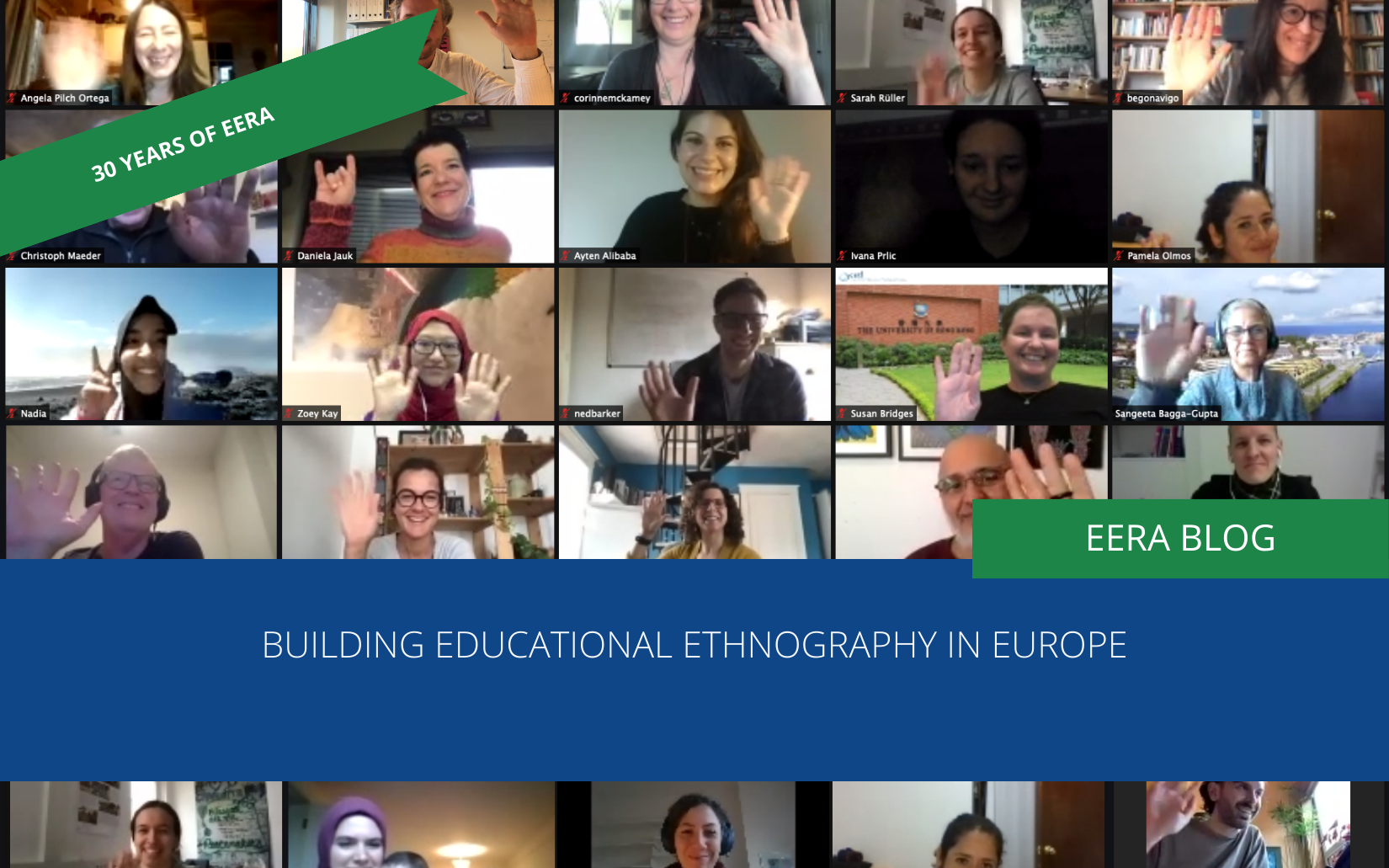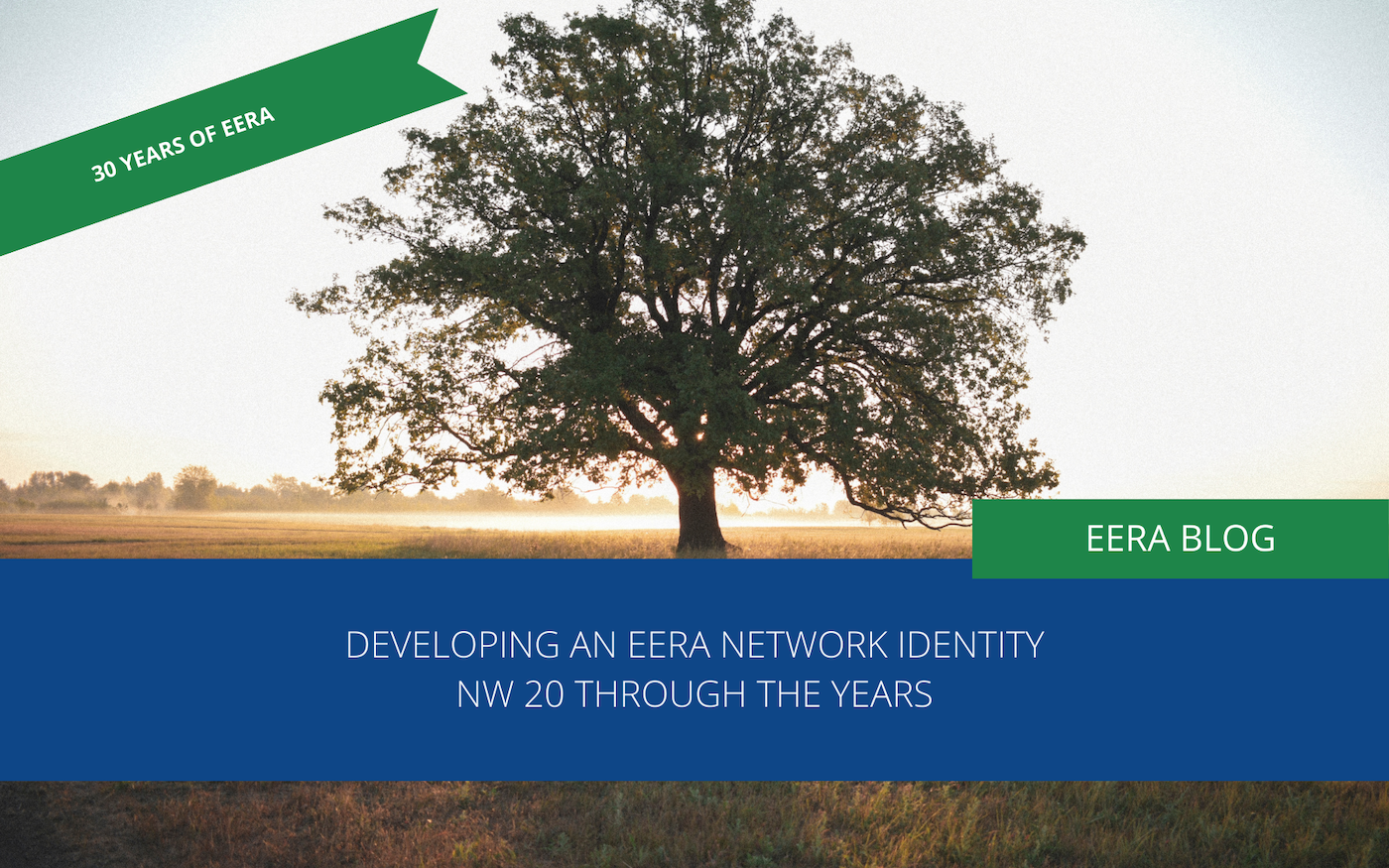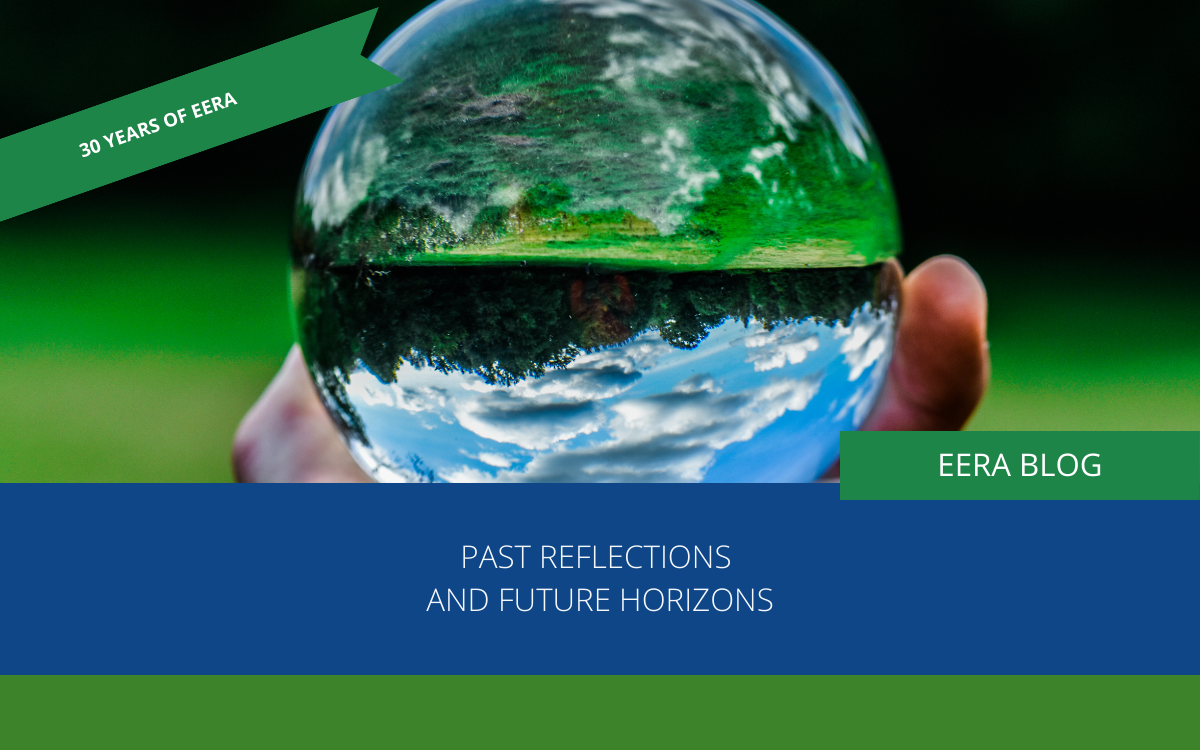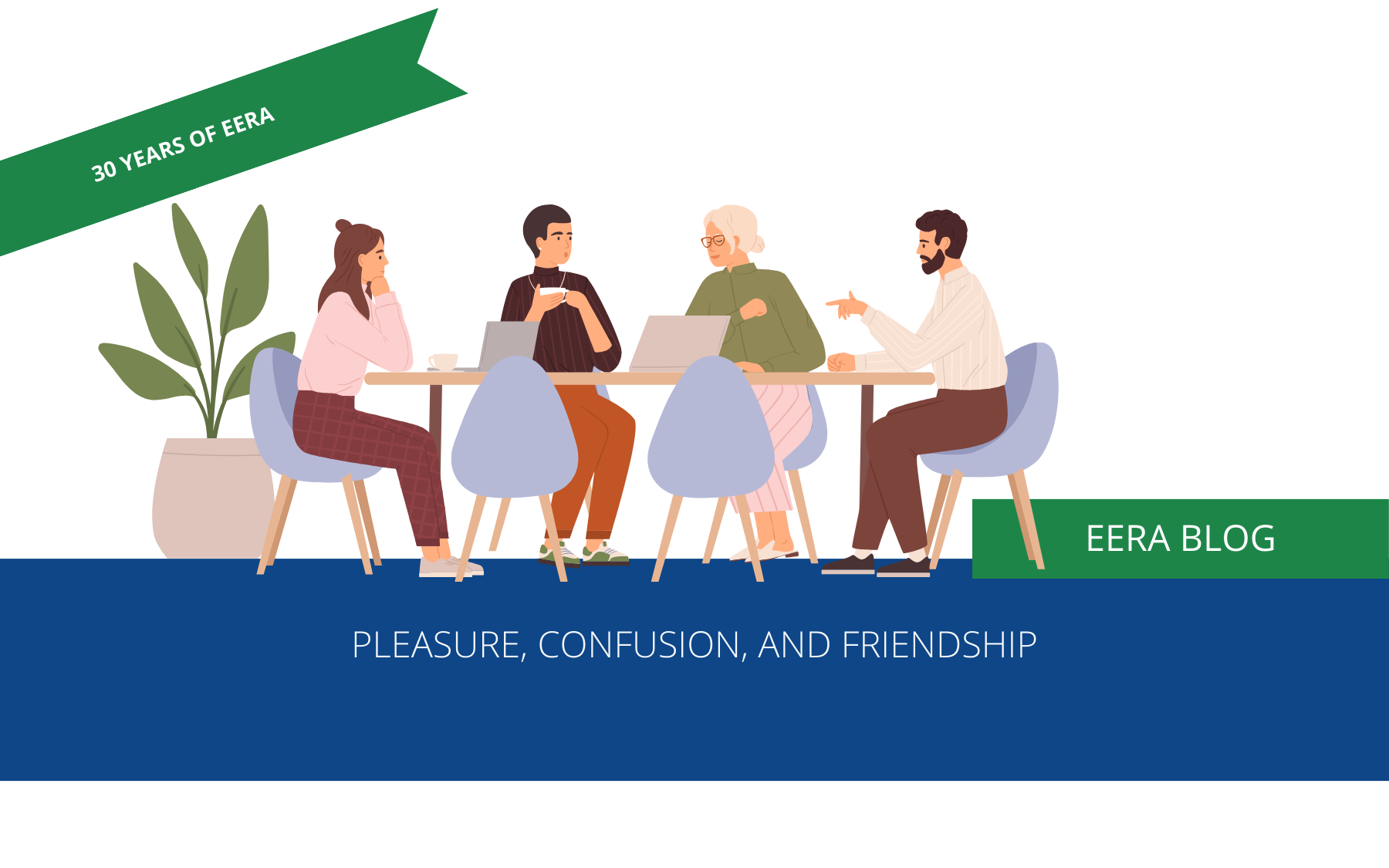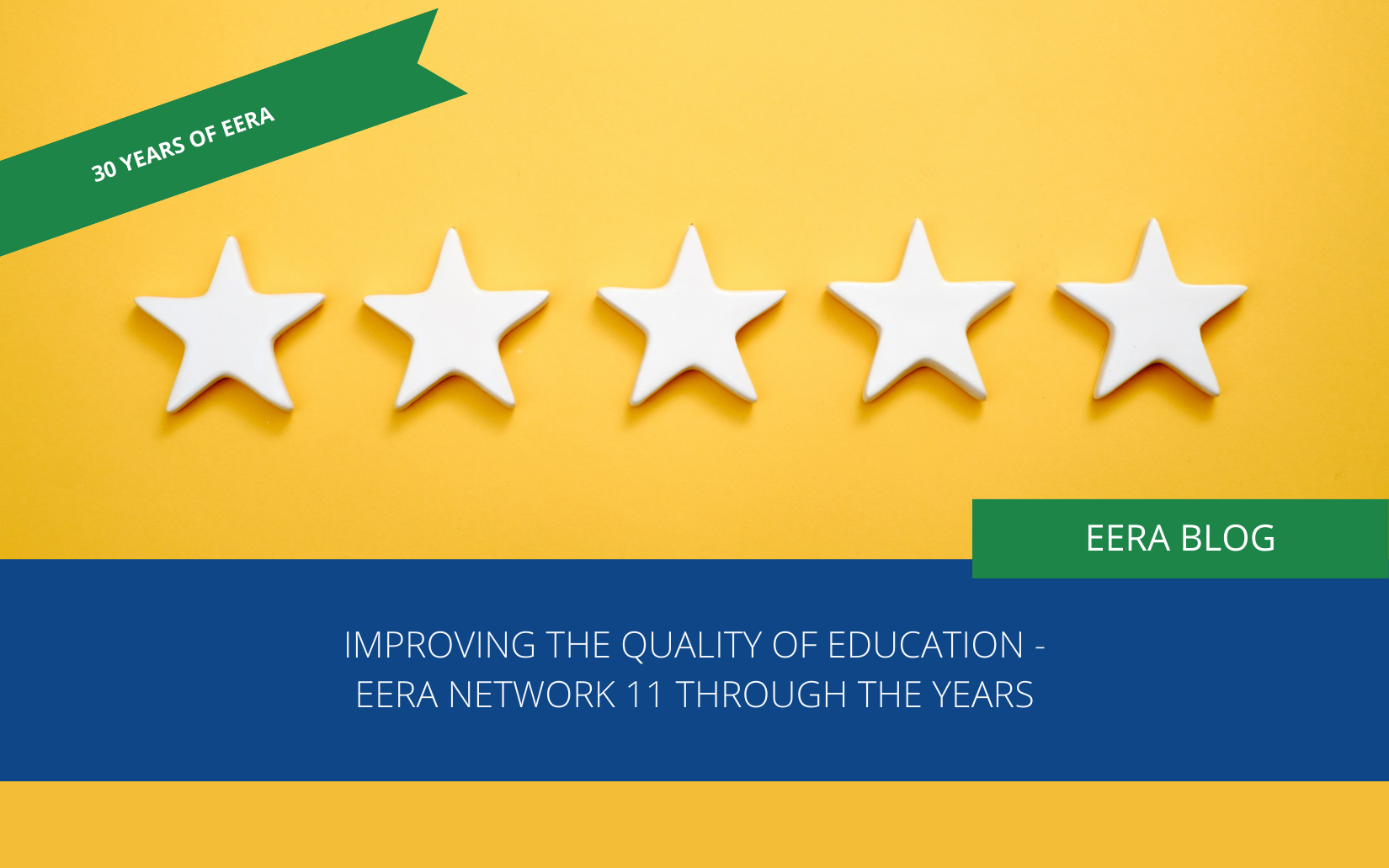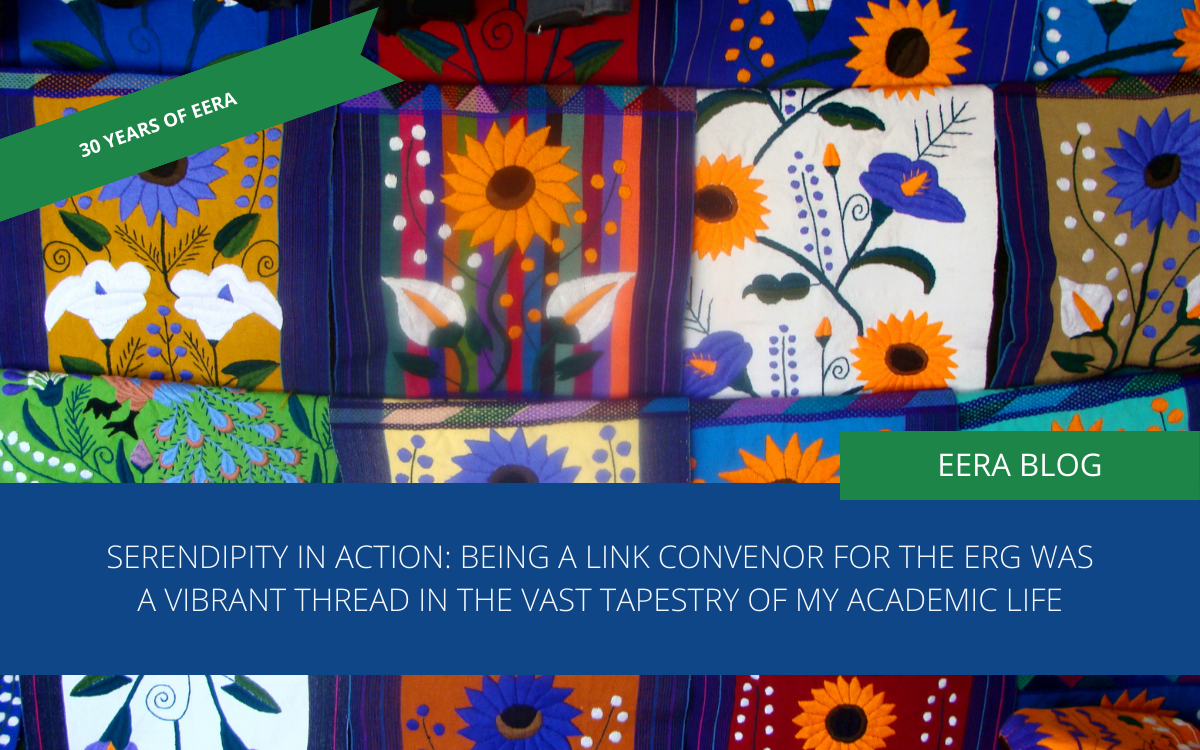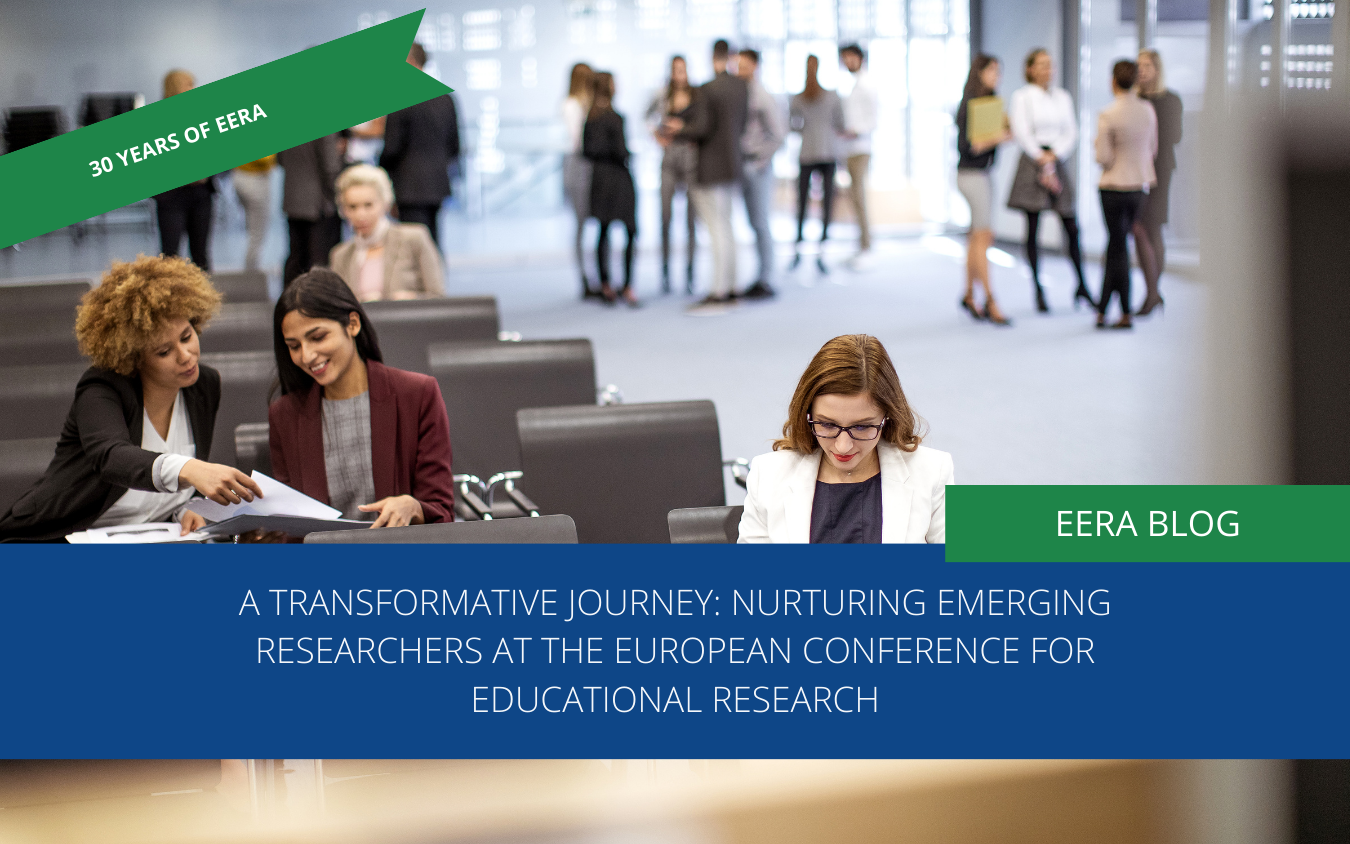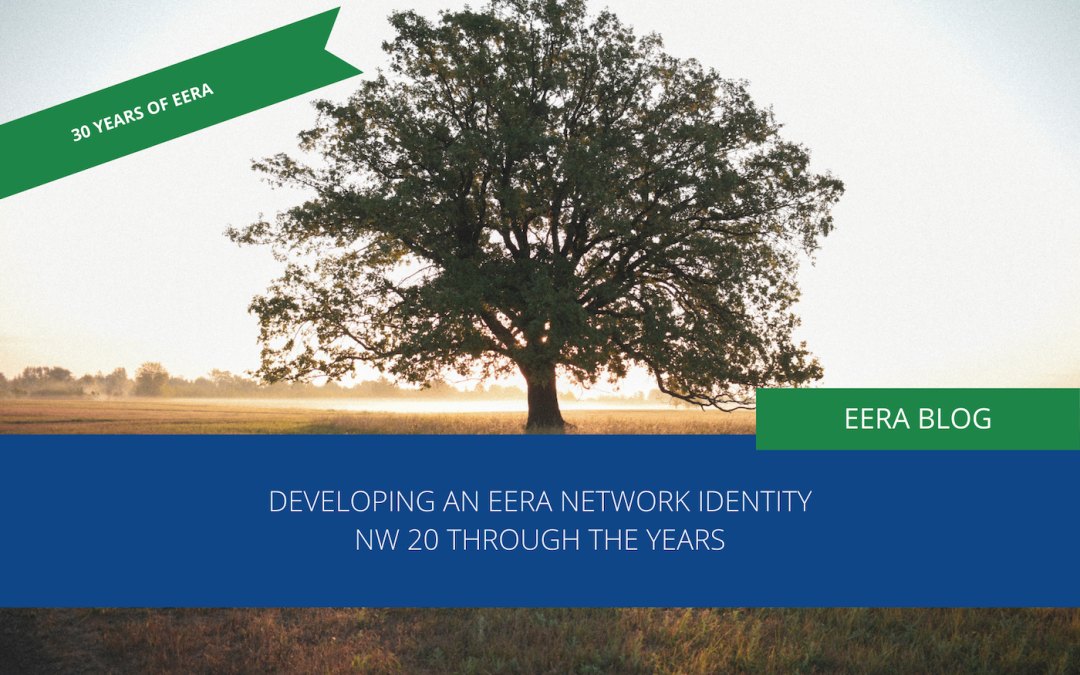
Developing an EERA Network Identity – NW 20 through the years
EERA is celebrating 30 years in 2024, and as part of our anniversary celebrations, we have invited people who have been at the heart of the association to share their memories and reflections. In a series of blog posts, which will run throughout 2024, we will share those precious memories, from the people who helped foster the global EERA community.
In this blog post, Raimonda Brunevičiūtė reflects on the history of Network 20, Research in Innovative Intercultural Learning Environment.
My first experience with EERA and ECER was also my first experience with NW 20 Research in Innovative Intercultural Learning Environment. Back in 2004, NW 20, still in its third year of operation, stood out from other networks with clearly defined research boundaries, and therefore I immediately felt an affinity to it. Today, I would like to reflect on my 20 years of experience as its member and co-convenor.
NW 20 has never limited itself to only one area of education. From the intial two thematic presentation clusters in 2002/3, we have grown to cover over 15, most of them permanent.
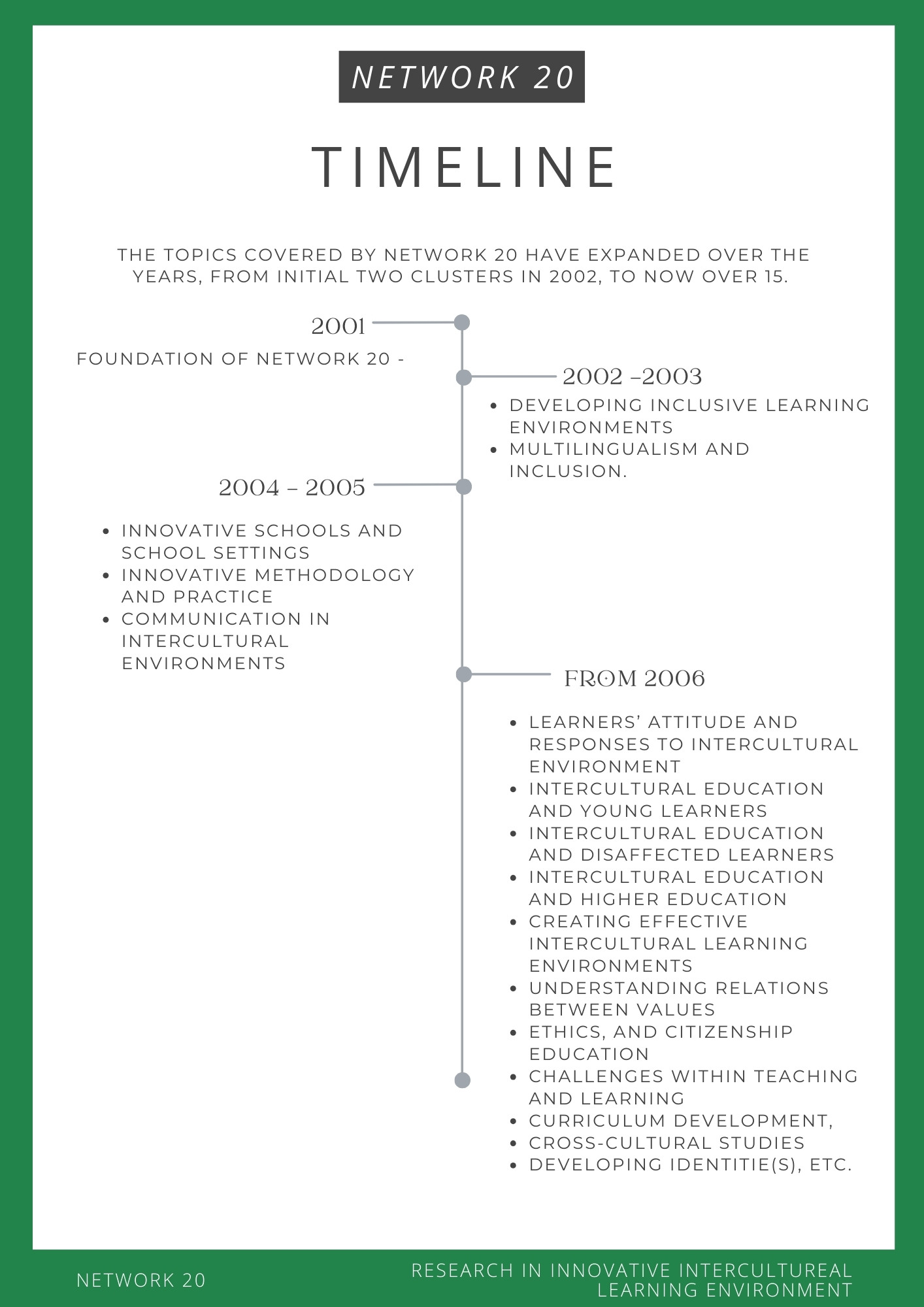
NW 20 may have appeared to have no face of its own, but the network’s founders, link convenors John Willumsen, Pavla Polechova, and Manfred Bayer, and later co-convenors Tony Cotton and Maria-Angels Subirats de Bayego, were particularly supportive, encouraging, and committed to conveying to younger co-convenors the network’s innovative and intercultural approach. This was the network’s face – dynamic, constantly renewing, accepting, accumulating, and developing new ideas. Openness strengthened the network’s identity and helped to sustain the network and to compete with the great topic diversity of newly emerging networks.
The turnover of network presenters was not surprising –they moved between NW 20 and other networks, but the majority of them became the network’s permanent members. Some, after having been in other networks, came back – like children who bring back gained knowledge and innovation to their homes. That turnover led to a special introductory ZERO session, unique to NW 20. It was first organized at ECER2010 in Helsinki by John Willumsen and Tony Cotton as an Interactive Workshop for Presenters and Others. Since ECER2011, the Berlin ZERO session has gained a clear direction – “Developing the Network 20 Community”.
In 2014-2015, the founder and long-time link convenor, John Willumsen and the first NW co-convenors left the network. For a long time, only a few of the co-convenors were involved in the network: Christian Quvang, who became a link convenor, Carmen Carmona Rodriguez, and myself, Raimonda Brunevičiūtė, while the rest of the co-convenors were newcomers. Although most members had been in the network for a longer time, the question of the NW 20 identity arose again. In ECER2016 and ECER2017, the ZERO sessions of the Network focused on discussing its future activities. This prompted me to invite my colleagues Christian Quvang, Carmen Carmona Rodriguez, and Nijolė Petronėlė Večkienė to collect material on the network’s activity during 2004-2018, highlighting the features that define its general identity, and to encourage the participants of the ZERO session to reflect and describe the organizational culture of the NW 20. That was to be completed by ECER2019 in Hamburg.
Our investigation was based on the statement that each individual or organization has an aggregate of characteristics that make them recognizable and distinguishable from the others. When defining its identity and signaling it to various groups of society, an organization is creating its corporate image, organizational culture being one of its key elements. According to Handy, all organizational cultures may be classified depending on how the organizational culture is formed, determined, and managed (consciously or not) by organization managers of all levels. According to this classification, there may be four kinds of organizational cultures: power (or club), role, task, and person. The network convenors’ position and functioning are very important in this respect.
Cameron and Quinn proposed a universal model, where all organizational cultures are classified according to two dimensions of criteria: 1) flexibility, discretion, and dynamism versus stability, order, and control and 2) internal orientation, integration, and unity versus external orientation, differentiation, and rivalry. Four types of organizational culture are identified: a) hierarchy-oriented culture; b) market-oriented culture; c) clan-oriented culture; and d) adhocracy-oriented culture. In this respect, the activities of network members inside and outside the network contribute to the creation of its identity.
Hofstede designed a model of cultural dimensions, where organizations are understood as mini-societies with specific cultural and lifestyle structures. A culture is a collective programming of a person’s thinking and an aggregate of commonly accepted values. Hofstede identified five cultural dimensions that may be used to describe and compare individual cultures: Power Distance, Uncertainty Avoidance, Individualism/Collectivism, Masculinity/Femininity, and Long-/Short-Term Orientation. Values form the stable core of the culture.
The first part of the ZERO session focused on the results of a retrospective survey content analysis and a generalized report on the topics (4) and activities of NW 20 during 2004-2018. During the second part, interactive discussion was used to define NW’s identity using the organizational models proposed by Cameron, Handy, and Hofstede.
The outcomes of the discussion on the experience of the previous years have shown that during the ZERO sessions, new members of the network become familiarized with the activity, history, and peculiarity of the NW 20, while its stable members reaffirm their relationship with the network, and all participants together discuss its future activities, preserving the axis of the identity and organizational culture of the NW 20.
As a result of this analysis, “The NW 20 topic tree” (5) was constructed, which is valuable for NW identity in the future. The diversity in the branches of this tree does not destroy or weaken, but rather nourishes and strengthens the trunk of the tree, wherein lie the core values of the network as a community – freedom, self-realization, and equal communication.

At the conclusion of our research, the main features of NW 20’s identity were identified: the NW community is formed by a variety of people; we pay attention not only to differences or similarities, but what civic and humane values people share each other; we welcome different methodologies in research and practice in different fields of learning environment; the main idea which unites the NW 20 community – wide understanding of innovation and intercultural learning.
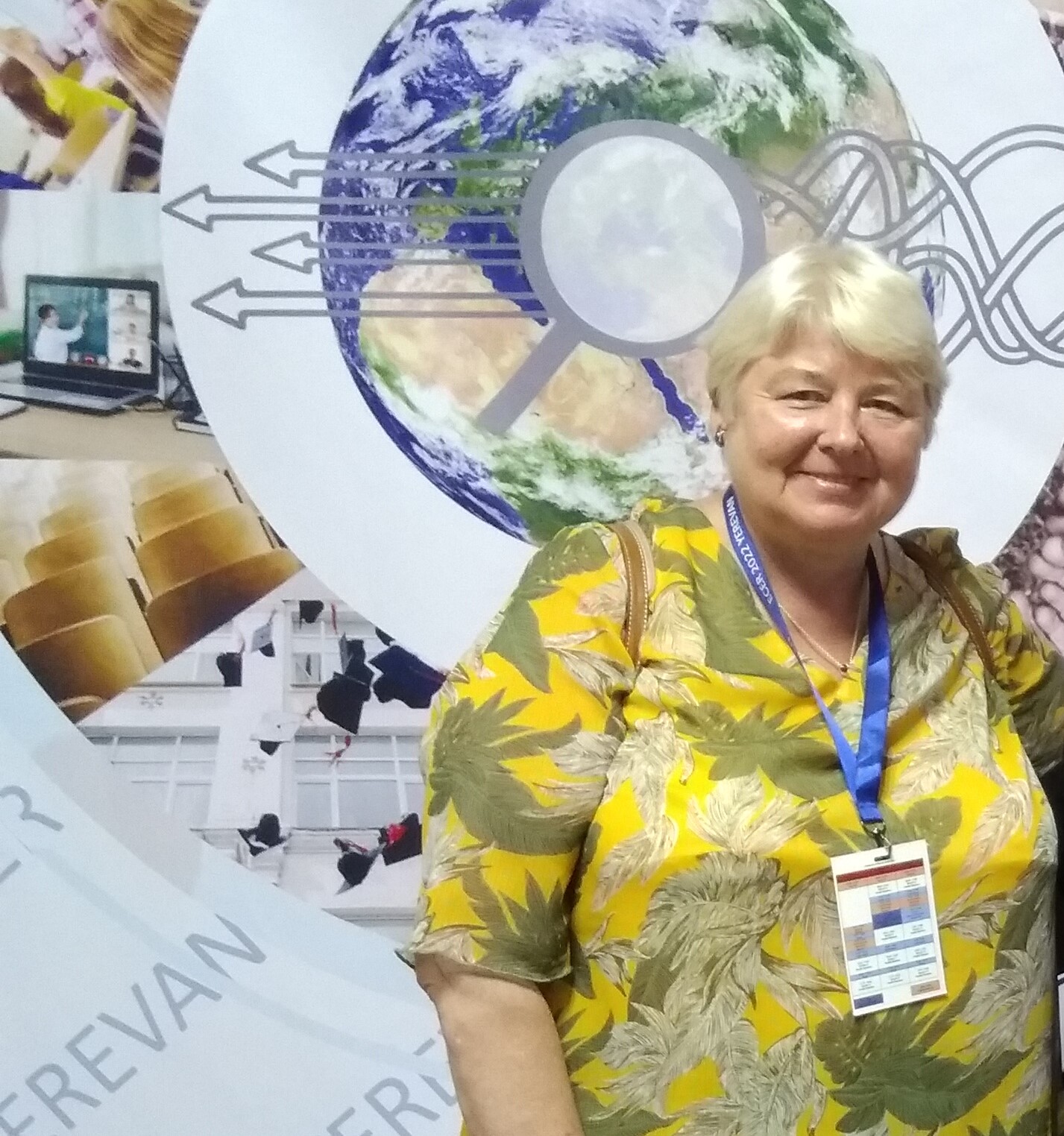
Prof. Dr. Raimonda Brunevičiūtė
Retired Professor of Lithuanian University of Health Sciences, Kaunas, Lithuania
Prof. Dr. Raimonda Brunevičiūtė is a retired Professor at the Lithuanian University of Health Sciences, Kaunas, Lithuania. She is a member of the Lithuanian Educational Research Association (LERA) Board and the Lithuanian Classical Association (Societas Classica) Board.
Prof. R. Brunevičiūtė has been a member of EERA NW 20 since 2004 and has been co-convenor of the NW 20 since 2008.
She has 43 years of experience teaching at the University Department of Languages and Education, as well as in secondary school (gymnasium). Her research interests focus on the history and didactics of teaching international classical origin terminology, humanitarian fundamentals in professional education, intercultural and interprofessional communication.

